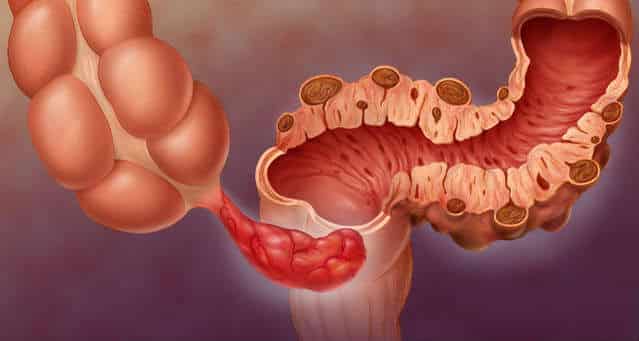Exploring the Roots: Unveiling Natural Solutions for Diverticulitis and Diverticulosis
Diverticulitis and diverticulosis, two common gastrointestinal conditions, affect millions of people worldwide. Diverticulosis refers to the development of small pouches, called diverticula, in the lining of the colon, while diverticulitis occurs when these pouches become inflamed or infected. Although the exact causes of these conditions are still not fully understood, researchers believe that a combination of factors, including a low-fiber diet, obesity, and age, contribute to their development.
The good news is that there are natural solutions available to help manage and alleviate the symptoms of diverticulitis and diverticulosis. While it's important to consult with a healthcare professional for an accurate diagnosis and tailored treatment plan, incorporating certain lifestyle changes and home remedies can offer some relief. These natural approaches aim to reduce inflammation, promote digestive health, and prevent flare-ups, ultimately improving the overall well-being of individuals dealing with these conditions.
In the following sections, we will delve deeper into the causes of diverticulitis and diverticulosis and explore a range of natural remedies that may help in managing the symptoms. From dietary modifications and herbal supplements to stress management and regular exercise, there are plenty of options to consider on the journey toward improved gastrointestinal health. So, let's embark on this exploration together, uncovering the roots and unveiling the natural solutions for diverticulitis and diverticulosis.
Understanding Diverticulitis
Diverticulitis is a condition that affects the digestive system. It occurs when small, bulging pouches called diverticula form in the lining of the colon and become inflamed or infected. Diverticula usually develop in weak areas of the colon, such as where the blood vessels penetrate the muscle layer.
The exact cause of diverticulitis is not fully understood, but it is believed that a combination of factors plays a role. One possible cause is a low-fiber diet, which can lead to the formation of hard stools and increased pressure in the colon. This pressure can then cause the development of diverticula. Other contributing factors may include aging, obesity, and a sedentary lifestyle.
Common symptoms of diverticulitis include abdominal pain, bloating, and changes in bowel habits. In some cases, complications can arise, such as abscesses or fistulas. It is important to seek medical attention if you experience severe or persistent symptoms.
Understanding the causes of diverticulitis can provide insights into how to prevent and manage this condition. In the following sections, we will explore natural remedies that can help alleviate symptoms and promote overall digestive health. Stay tuned for more information on how to tackle diverticulitis naturally.
Natural Remedies for Diverticulitis

-
Dietary Changes: Making necessary adjustments to your diet can play a significant role in managing diverticulitis. Consuming a high-fiber diet is crucial to promote regular bowel movements and prevent flare-ups. Including foods such as fruits, vegetables, whole grains, and legumes can help maintain digestive health. It is also essential to drink an adequate amount of water to aid digestion and soften stools.
-
Probiotics: Supplementing your diet with probiotics can support a healthy gut microbiome and potentially reduce inflammation associated with diverticulitis. Probiotics are beneficial bacteria that can be found in fermented foods like yogurt, kefir, sauerkraut, and kimchi. Alternatively, probiotic supplements are available in various forms, allowing for convenient consumption.
-
Herbal Remedies: Certain herbs possess properties that can help alleviate symptoms of diverticulitis. For instance, chamomile has anti-inflammatory effects and can promote digestive health. diverticulitis natural help , another powerful herb, exhibits antioxidant and anti-inflammatory properties, which may contribute to reducing inflammation in the colon. Before incorporating any herbal remedies into your routine, it is recommended to consult with a healthcare professional to ensure safety and effectiveness.
Remember, while natural remedies can be beneficial, it is important to seek medical advice and follow prescribed treatments for diverticulitis. These remedies can complement conventional approaches, but they should not replace them entirely.
Prevention and Management of Diverticulitis
In order to prevent and effectively manage diverticulitis, it is crucial to adopt a proactive approach towards maintaining a healthy lifestyle. Making certain dietary and lifestyle modifications can significantly reduce the risk of developing complications associated with diverticulitis.
Firstly, ensuring an adequate intake of fiber is essential. Incorporating high-fiber foods such as fruits, vegetables, whole grains, and legumes into your diet can help promote healthy bowel movements and prevent the formation of diverticula. It is recommended to gradually increase fiber intake to allow the body to adjust.
Additionally, staying well-hydrated is important to keep the digestive system functioning optimally. Drinking plenty of fluids, especially water, can help prevent constipation and promote regular bowel movements, reducing the chances of diverticula becoming inflamed or infected.
Moreover, regular exercise plays a crucial role in maintaining a healthy digestive system. Engaging in physical activities such as brisk walking, cycling, or swimming can help stimulate bowel movements and prevent complications associated with diverticulitis. Aim for at least 30 minutes of moderate-intensity exercise most days of the week.
By adopting these preventive measures, individuals can minimize the risk of developing diverticulitis and effectively manage the condition if it arises. Remember to always consult with a healthcare professional for personalized advice and guidance.